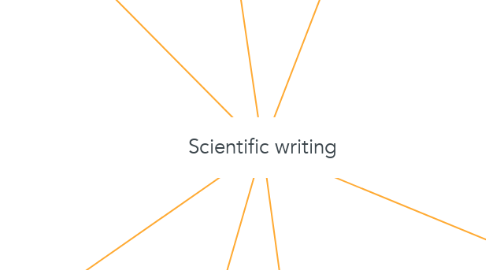
1. types of the SS
1.1. pop-science
1.2. scientific
1.3. academic
1.4. business
1.5. informative
1.6. journalistic
1.7. reference
1.8. technical
2. features of the SS
2.1. general(primary)
2.1.1. abstract generalization
2.1.2. emphasized logic
2.1.3. terminology
2.2. private (secondary)
2.2.1. accuracy, objectivity
2.2.2. unambiguity, assessment
2.2.3. severity, rigor
2.2.4. non-categorical, unambiguity, assessment.
3. Being critical writer
3.1. critical reading
3.1.1. revision of evidence
3.1.1.1. the carefully constructed rationale for the research
3.1.1.2. the choice of methods for data collection
3.1.1.3. the findings of a scientific experiment
3.1.1.4. the decisions made in the analysis process
3.1.2. devise your own list of information to сollect
3.1.3. determine the central claims
3.1.4. purpose of the text
3.1.5. begin to make some judgments
3.1.5.1. What audience is the text written for?
3.1.5.2. Who is it in dialogue with?
3.1.5.3. In what historical context is written?
3.1.5.4. What concepts are defined and used?
3.1.5.5. Does the text appeal to a theory or theories?
3.1.5.6. Is any specific methodology laid out?
3.1.5.7. How has the author analyzed, broken down the material?
3.1.5.8. Are the sources primary or secondary?
3.1.5.9. If the argument is strong, why is it strong?
3.1.5.10. Сould it be better or differently supported?
3.1.5.11. Are there gaps, leaps, or inconsistencies in the argument?
3.1.5.12. Could evidence be interpreted in a different way?
3.2. to evaluate other's arguments
3.2.1. constructive criticism
3.3. to develop your own adequately supported arguments
3.3.1. making them clear
3.3.2. making them well supported
3.3.3. making them possible
3.4. Examining the interpretations made
4. Interacting with Texts
4.1. While reading the lines
4.1.1. focus on ideas an information directly stated in the text
4.1.2. analyse and infer meaning not directly stated in the text
4.1.3. infer meaning from a text
4.1.4. go beyond the directly stated ideas and look for hidden meanings
4.1.5. you engage actively with the ideas of a writer even
4.1.6. ou're actually involved in a kind of mental conversation
5. Research Questions
5.1. must be
5.1.1. guides and centers your research
5.1.2. something that you're interested in or care about
5.1.3. clear and focused
5.1.4. synthesized from multiple sources to present your unique argument
5.1.5. show your own imagination and your ability to construct
5.1.6. develop research issues
5.2. should ask yourself
5.2.1. Do I know the field and its literature well?
5.2.2. What are the important research questions in my field?
5.2.3. What areas need further exploration?
5.2.4. Could my study fill a gap or could it lead to a greater understanding of the topic area?
5.2.5. Has a great deal of research already been done in this topic area?
5.2.6. Has this study been done before?
5.2.7. If so, is there room for improvement?
5.2.8. Is the timing right for this question to be answered?
5.2.9. Is it a hot topic or is it becoming obsolete?
5.2.10. Would funding sources be interested?
5.2.11. Will my study have a significant impact on the field?
6. Formulating a Hypothesis
6.1. Make it clear.
6.1.1. good
6.1.2. simple
6.2. Defines the variables in easy to measure terms
6.2.1. Who the participants are?
6.2.2. What changes during the testing?
6.2.3. And what the effect of the changes will be?
6.3. Testable
6.3.1. to do an experiment
6.3.2. take measurements
6.3.3. make observations to see how two things your variables are related
6.3.4. read credible sources related to the area of your research
